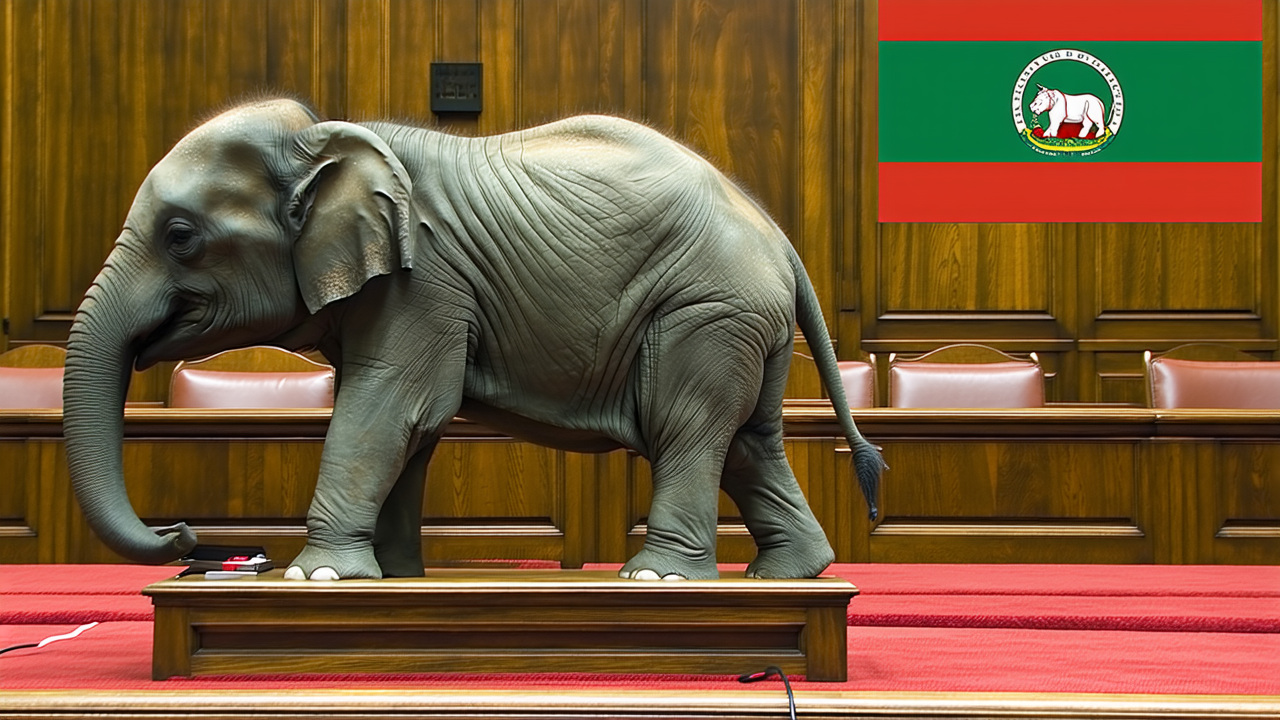Sri Lanka High Court Sentences Man 15 Years for Stolen Baby Elephant
Sri Lanka’s Landmark Elephant Trafficking Case Concludes with 15-Year Sentence
Colombo, Sri Lanka — In a landmark ruling that has sent shockwaves through Sri Lanka’s conservation community, the High Court of Sri Lanka has sentenced Niraj Roshan to 15 years in prison for his role in the trafficking of a stolen baby elephant. The verdict marks the first time a court in Sri Lanka has addressed the issue of elephant trafficking, setting a significant precedent for future legal actions against wildlife crimes.
The three-judge panel in Colombo found Roshan guilty on two counts: illegally keeping a stolen baby elephant and falsifying documents to make it appear as though he had obtained the elephant legally. In addition to the prison sentence, Roshan was ordered to pay a fine of approximately US$68,600 and the elephant was confiscated by the state. The case, which had been pending for six years, has been hailed as a turning point in Sri Lanka’s fight against the illegal wildlife trade.
Seven other individuals involved in the case were cleared due to insufficient evidence, highlighting the challenges of proving such crimes in the absence of strong forensic and legal frameworks. Despite this, the conviction of Roshan is a clear signal that Sri Lanka is taking a more rigorous stance against the trafficking of its most iconic and vulnerable wildlife.
Wildlife experts have long warned of the devastating impact of the illegal elephant trade on Sri Lanka’s ecosystem. Over the past decade, it is estimated that around 40 baby elephants have been stolen from their herds and sold for as much as US$125,000 each. This practice has been linked to a sharp decline in the country’s elephant population, as mothers are often killed to capture their young. The illegal trade also contributes to a growing human-elephant conflict, which has resulted in the deaths of around 400 elephants and 200 people annually over the past five years.
The situation took a significant turn in 2015 when a new government launched a crackdown on the illegal wildlife trade, leading to a decline in reported cases. However, concerns were raised in 2019 when Gotabaya Rajapaksa, who served briefly as President, had several elephant theft cases dropped. During his time in the administration of his elder brother, Mahinda Rajapaksa, from 2005 to 2015, Rajapaksa was known to have kept two baby elephants at his official residence, a practice that has since been widely criticized.
Owning a baby elephant has long been a symbol of status among Sri Lanka’s elite, with aristocratic families historically being the primary buyers of these stolen animals. This cultural association has fueled the illegal trade, despite the fact that elephants are considered a national treasure and a key part of Sri Lanka’s Buddhist heritage. The country’s estimated 7,000 wild elephants are not only a vital part of the ecosystem but also a symbol of the nation’s rich cultural identity.
Environmentalists and conservationists have welcomed the recent conviction, calling it a long-overdue step in the right direction. However, they caution that much more needs to be done to address the root causes of elephant trafficking, including the demand for baby elephants among the wealthy and the lack of legal protections for wild elephants. As Sri Lanka continues to grapple with the challenges of human-elephant conflict and habitat loss, the case of Niraj Roshan serves as a powerful reminder of the legal and moral responsibilities that come with protecting the country’s natural heritage.
